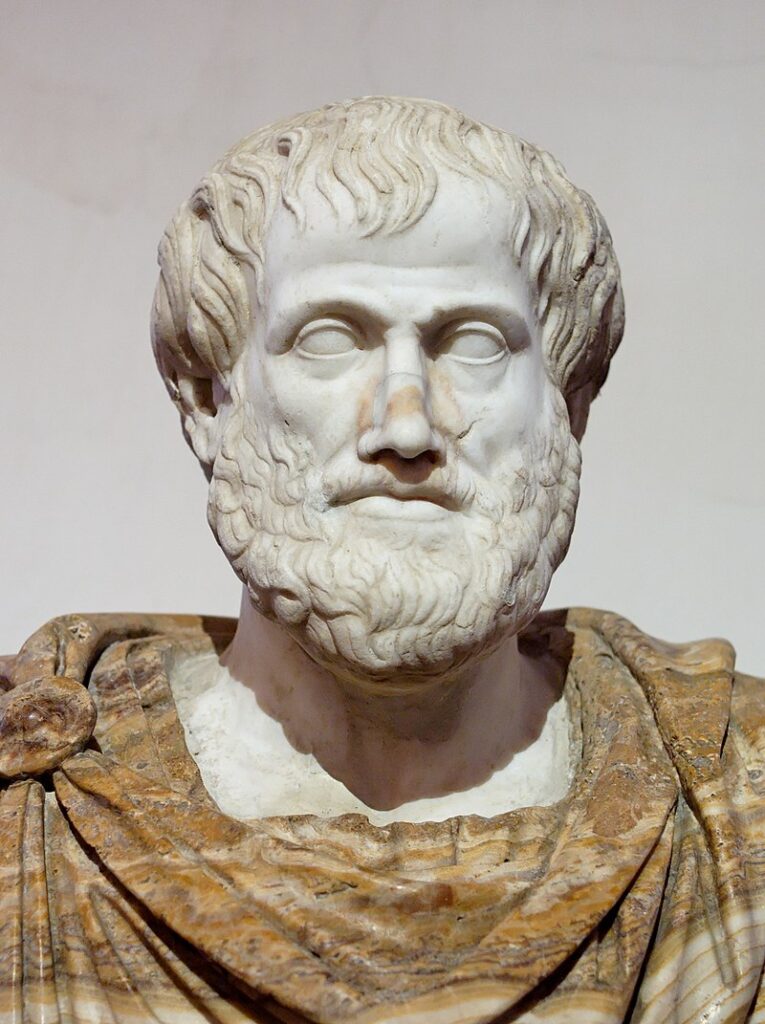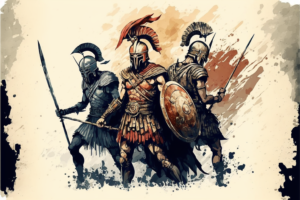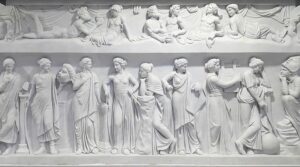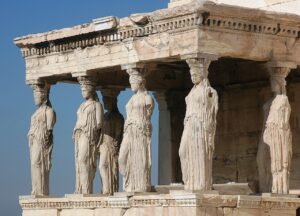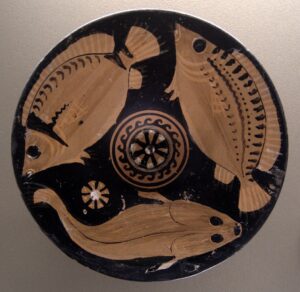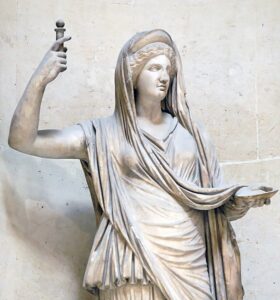Aristotle was an ancient Greek philosopher who lived from 384-322 BCE. He was one of the most influential figures in the development of Western philosophy and science, and is widely considered to be important to the study of the natural sciences. He was a student of Plato and tutored Alexander the Great. He was the founder of the Lyceum, a school in Athens where he taught for many years. His extensive writings covered a wide range of topics, including ethics, politics, metaphysics, biology, and physics. These factors combined to make him one of the most significant philosophers of ancient Greece, and show his profound impact on ancient Greek culture.
Aristotle’s Early Life and Education
Aristotle was born in the city of Stagira in northern Greece. His father, Nicomachus, was a court physician to the king of Macedonia, and Aristotle was exposed to medicine and science from a young age. At the age of 17, he moved to Athens to attend Plato’s Academy, where he studied for 20 years. Although the exact details of his life are not necessarily agreed upon by historians due to the lack of verifiable records from the time.
While at Plato’s Academy, he studied and was heavily influenced by his mentor’s ideas. However, Aristotle’s own philosophy ultimately diverged from Plato’s, and he went on to develop his own distinctive theories. After leaving the Academy, he traveled throughout the Mediterranean, studying and conducting research.
In 343 BCE, Aristotle was asked by Philip II of Macedon to tutor to his son Alexander, who would go on to become the famous Alexander the Great. Over a period of three years Aristotle taught Alexander about philosophy, poetry, drama, science, and politics. More specifically, Alexander learned about the works of Homer, and in particular the ‘Iliad’, which is one of the oldest pieces of literature. Aristotle gave him an annotated copy of the work, which Alexander apparently kept with him on the military campaigns he undertook later in life.

Aristotle’s Contributions to Philosophy and Science
Aristotle is known for his wide-ranging interests and his empirical approach to understanding the natural world. He made significant contributions in the fields of logic, metaphysics, ethics, politics, biology, and other areas. He believed in finding a middle ground between extremes and his concept of the “golden mean” became a fundamental principle in his ethical thinking.
He wrote many works on various subjects, some of which have been lost, but his surviving works include the Nicomachean Ethics, Politics, and his logical treatises, Organon.
In politics, Aristotle believed that the best form of government was a constitutional monarchy, where the king was limited by law and a system of checks and balances was in place. He also believed that education was a crucial component of a good society, and that it was the responsibility of the state to provide education to its citizens.
Aristotle made significant contributions to the natural sciences, including biology, physics, and astronomy. In biology, Aristotle classified living things into categories, and was the first to describe the concept of the food chain. He also believed that the universe was composed of five elements: earth, air, fire, water, and aether.
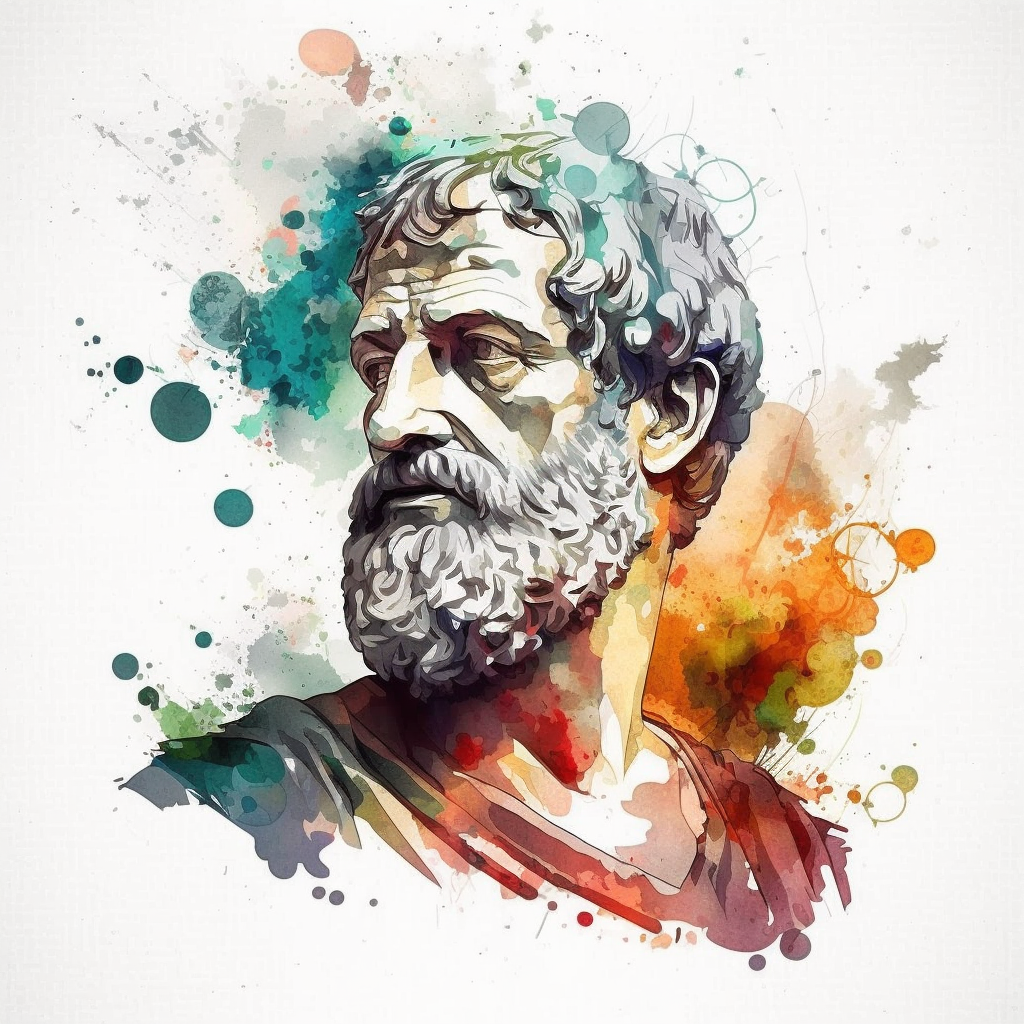
Significance of Aristotle
Aristotle’s ideas and methods have had a profound influence on Western culture and thought. His concept of the “golden mean” became a fundamental principle in ethical thinking and his work in logic and science laid the foundation for the development of these fields in the Western world. His ideas and methods continue to be studied and discussed today.
In summary, he was a Greek philosopher and student of Plato, and is considered one of the most important figures in the history of Western philosophy. He made significant contributions in the fields of logic, metaphysics, ethics, politics, biology and other areas. He is known for his wide-ranging interests and his empirical approach to understanding the natural world. His ideas and methods have had a profound influence on Western culture and thought and continue to be studied and discussed today.

